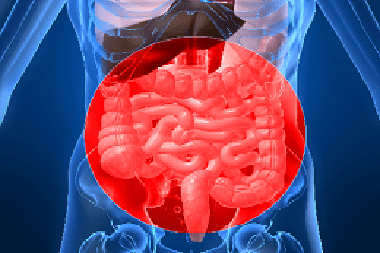Health for a lifetime >>>> What is indigestion?
What is indigestion?

It's no secret that the main processes of digestion take place in the stomach, where food is processed by special enzymes, breaks down into smaller components to continue the journey through the digestive tract and more detailed digestion in the small and large intestines.
The stomach has a certain size and is equipped with special analyzers of the degree of its filling, which prevent a person from endlessly filling the stomach with food. Analyzers give signals that the volume of the stomach is close to filling, and a person experiences a feeling of fullness, loses his appetite, and thereby allows food to be digested and go through the entire further path of disposal.
In some people, due to certain circumstances (ineffective chewing, disruption of enzymatic activity), the food in the stomach does not have time to reach a certain degree of grinding and continues to move through the intestines in a semi-digested form, which causes a very unpleasant sensation in a person, because the intestinal walls are not adapted to rigid movement food, lumps, and calmly move only well-processed enzymes, split to a mushy consistency, food mass. From here there are injuries to the intestinal walls, swelling of the intestine, excessive stretching of its walls, which actually disrupts peristalsis, inhibits further digestion and results in such disorders for a person as constipation, diarrhea, flatulence.
As the digested food moves, the person experiences heaviness in the stomach, pain in the abdomen (in the intestines), and then faces upset stools. Indigestion badly affects not only the work of the digestive tract, it disrupts metabolic processes, since the body cannot isolate the useful components it needs from undigested food, removes them as waste, and the whole process of digestion loses its meaning. Indigestion can cause hypovitaminosis, beriberi, colitis, initiate carcinogenesis processes (malignancy of tissues). Therefore, signs of indigestion should be the driving factor that will make a person think about their health.
How to identify signs of indigestion:
- A feeling of heaviness some time after eating, although in a normal state this should not be observed;
- Throbbing pain in the intestines;
- A feeling of incomplete bowel movement;
- Violation of the regularity of bowel movements;
- Pieces of undigested food in feces.
To treat indigestion, you must start by changing the culture of food intake:
- Chew pieces of food thoroughly,
- Do not swallow food in large portions or in a hurry,
- Prepare meals in crushed form (chopped, in the form of pates, mashed potatoes, jellied, grated),
- It is advisable to eat vegetables and fruits in boiled, sautéed or baked form,
- Temporarily stop eating foods that require long-term digestion (mushrooms, fatty meat, fatty fish).
It is necessary to conduct studies of the enzymatic activity of the stomach and, as prescribed by a doctor, take drugs that stimulate enzymatic activity.

Read

Read



























